A dive into i-EDGE technology
Take a deep dive into the cutting-edge technology we are developing that aims at enabling ultra-low-power electronics capable of operating in extreme environments — including high temperatures and intense radiation.
Discover it on our outcomes page - along with many other interesting outcomes - to learn more on how i-EDGE is shaping the future of resilient, energy-efficient electronics.
i-EDGE CM5
Two days of collaborative exchanges which enabled us to review the progress achieved so far and plan for the next 6 months.
Thanks to our host TUWIEN for organising this 5th consortium meeting in beautiful Vienna.

Congratulations to Qi Tang for her PhD thesis
Many congratulations to Qi Tang from the UNIVBRIS team who successfully defended her PhD thesis on “Design, Fabrication and Characterisation of Nano-electromechanical (NEM) Relays for Circuit Applications”.
Qi carried out this work within the ZeroAMP and i-EDGE projects and was an author / coauthor on four journal papers and 5 conference papers. Well done Qi!
i-EDGE 4th consortium meeting
On 26 June 2024, the i-EDGE members got together for the 4th consortium meeting "CM4" hosted by AMO in Aachen, Germany.
This fruitful scientific meeting was also the opportunity to rehearse the review which took place the following day in the presence of our project officer and reviewer.

i-EDGE featured in INNO
We're excited to announce that NEM Switch Technology, pioneered in the i-EDGE project, has been featured on page 8 of the latest issue of "INNO" magazine dedicated to: "Forward Horizons: Exploring Future Technologies“
"INNO" is an international high-tech magazine for users of micro- and nanotechnology, photonics, MEMS, and advanced materials. Published three to four times a year by the IVAM Microtechnology Network, it highlights cutting-edge advancements and innovations in these fields.
Read the latest issue here.

i-EDGE has received funding from the European Union (grant number 101092018), the Swiss State Secretariat for Education, Research and Innovation (SERI) and UK Research and Innovation (UKRI) under the UK government's Horizon Europe funding guarantee (grant numbers 10061130 and 10063023).
Views and opinions expressed are however those of the author(s) only and do not necessarily reflect those of the European Union, European Health and Digital Executive Agency (HADEA), SERI or UKRI. Neither the European Union nor the granting authorities can be held responsible for them.

